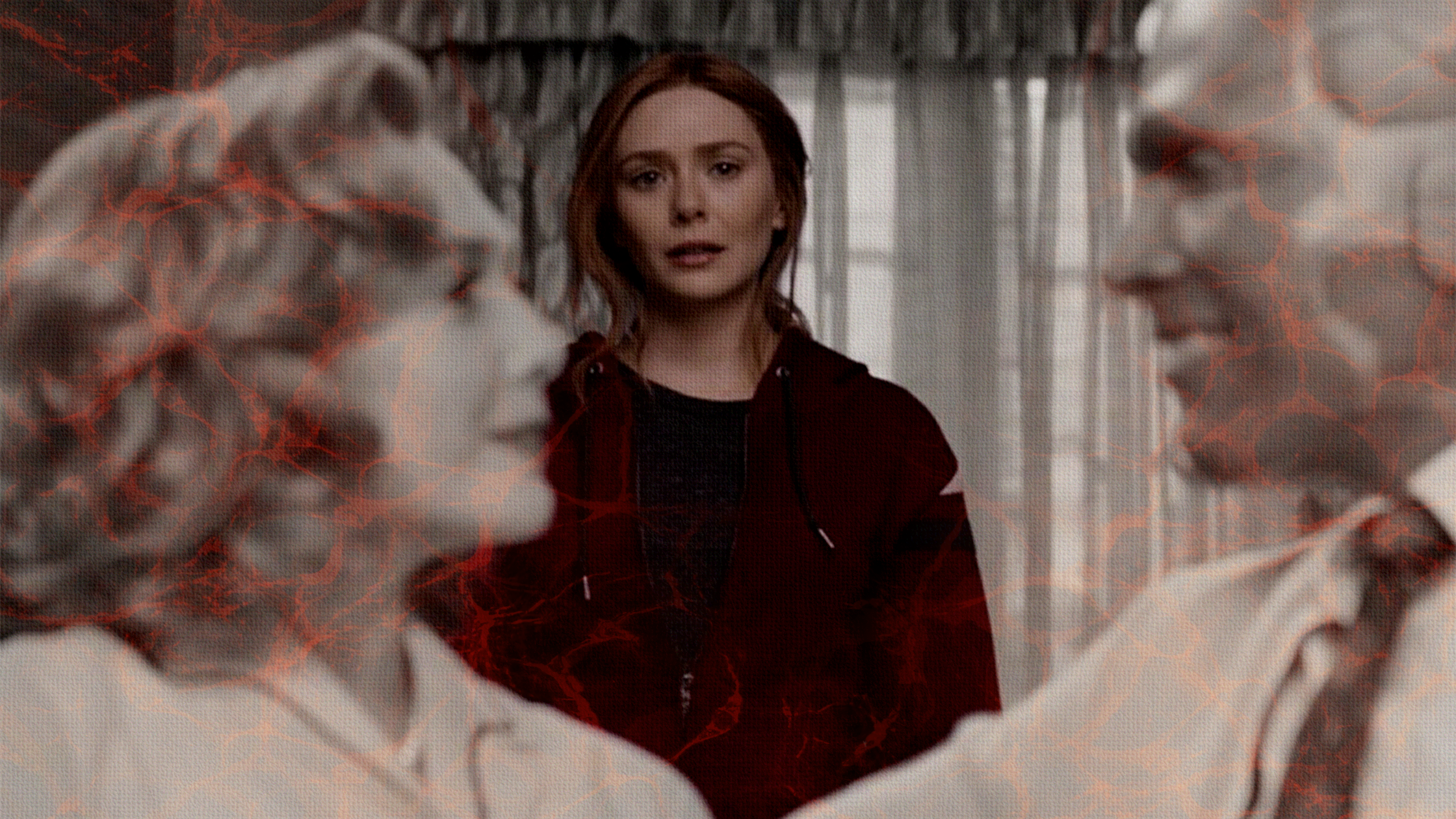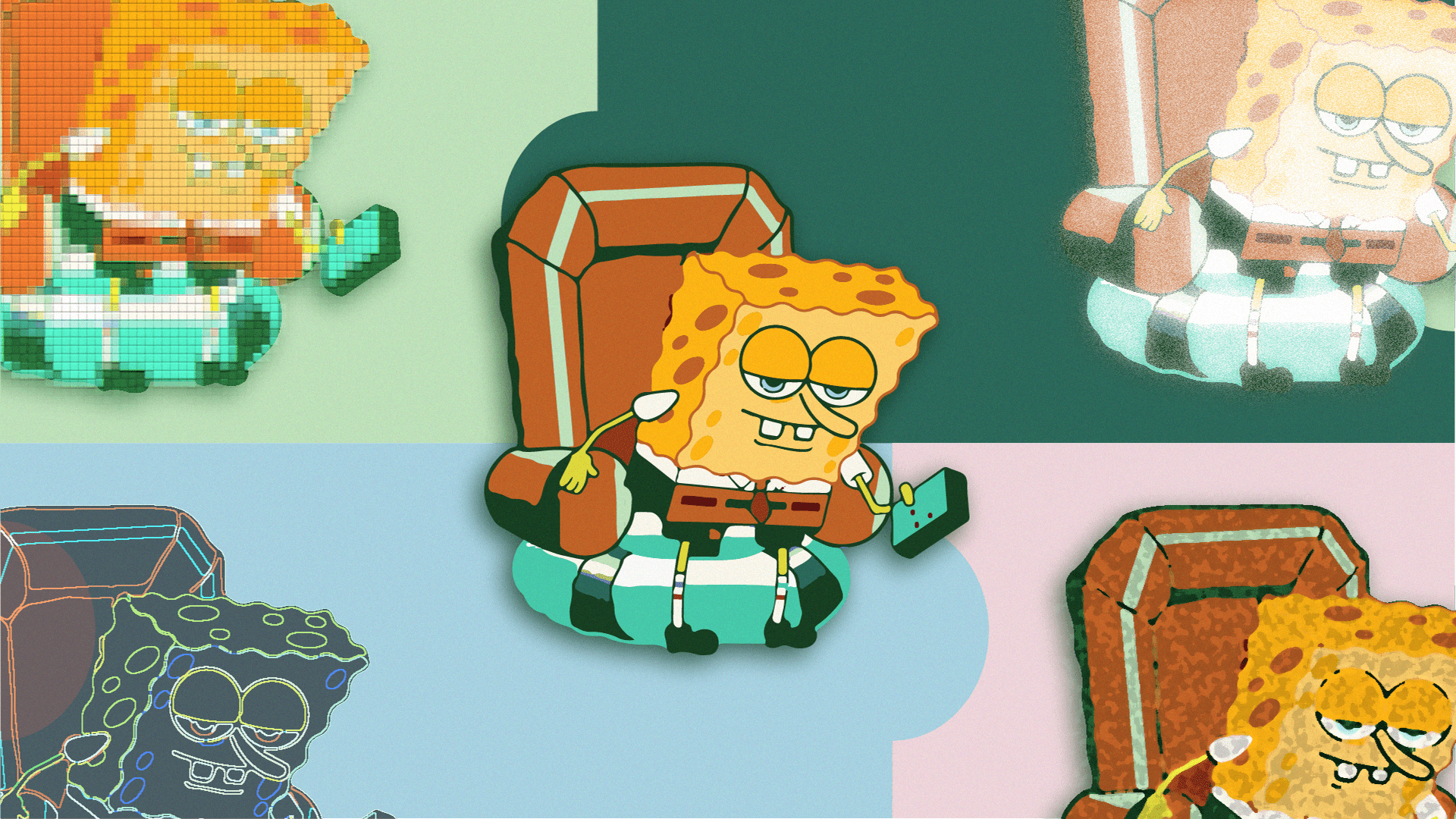
What ‘WandaVision’ Proves About Grief
WandaVision’s exploration of grief and trauma suggests that community and support systems are more important than we might think.
Spoilers for WandaVision and the MCU ahead.
I keep thinking about the awful seduction of a lobotomy. That a doctor could possibly extract all the bad stuff from my head and make me a more productive citizen and loving family member. It bewilders me to see other people already moving on from this year of profound loss, the effects of climate grief, and the erosion of traditional levels of adulthood by late-stage capitalism. They seem to me like the brainwashed residents of Westview, N.J. in WandaVision, Marvel’s nine-episode miniseries on Disney+. Loosely controlled by Wanda Maximoff (Elizabeth Olsen), the residents act out a scripted version of idyllic suburban life, unaware of the dangers lurking between town fundraisers and Halloween festivals.
WandaVision joins a long line of pop culture plots to alleviate the burden of grief by snuffing it out instead of processing it. In the CW’s The Vampire Diaries, the titular immortal beings could “flip a switch” and turn their humanity off when it became too much. In Lauren Oliver’s young adult Delirium trilogy, the dystopian government surgically removes love from people’s brains to make it easier to live. In most iterations of The Stepford Wives, women are made into perfectly submissive homemakers by the conformity of suburbia (and things like robotic replacement or brainwashing).
Wanda herself has so much grief: she has lost her parents, her childhood home, her twin brother, and her life partner before reaching age 30. Paired with her superpowers and the seeming indifference to her pain by everyone left in her life, Wanda accidentally hijacks the entire town of Westview using chaos magic and turns it into an evolving sitcom set. Unable to bury the body of her Synthezoid partner, Vision, she leans into the future he planned for them: a quiet life with sidewalks, friendly neighbors, and a gazebo in the town square. To complete the fantasy, she brings a version of him back to life.
Even if Vision had not died twice in Avengers: Infinity War (2018), it’s a far-fetched fantasy. Agencies like S.H.I.E.L.D. and S.W.O.R.D. would never have allowed the most powerful Avengers total peace and privacy. And after seeing the destruction wrought in her Sokovian hometown by Americans who thought they knew best, why would Wanda accept their worldview? After joining HYDRA as a young woman, wouldn’t she be skeptical of any future that promised such things?
Grief is funny like that. It takes a strong, capable person and reduces them to their coping mechanisms: watching old television shows, reliving moments with the deceased over and over, planning improbable futures on a Pinterest board. I will admit to some misplaced jealousy at Wanda’s situation, because at least her grief is specific and nameable: Mom, Dad, Pietro, and Vision. For many people described as Gen Z or Millennials, grief is more ambiguous. It can be publicly mourning the late Chadwick Boseman, or lamenting your favorite city because it will likely be underwater in a few decades.
Wanda’s subconscious decision to go ahead with an impossible plan for the future (growing old and raising children with Vision) feels so relatable because we all do it to some extent. We imagine getting out of generational poverty, getting our dream homes, getting adequate healthcare. We focus so much on creating a bearable future that we leave little time to mourn what we once appeared entitled to take. A series that demonstrates the harm we do to ourselves and others by carrying on as if everything is okay can be cathartic, even if it frequently involves beams of light shooting out of people.
WandaVision — like nearly everything in the Marvel Cinematic Universe — is thinly veiled military propaganda that rarely challenges its audience and leans heavily on our sitcom nostalgia. Its $25-million-dollars-a-pop episodes are not some funky indie foray into the superhero craze, but carefully plotted, focus-grouped, and analyzed attempts to appeal to the widest viewership possible. I could list dozens of writers and directors that deal with grief in smarter, more interesting ways. Like how the hit HBO series Big Little Lies explores the pain of missing terrible people, or the ways in which Harry Mulisch’s The Assault challenges our notion of ever getting over grief. Even better, the skill with which Lulu Wang’s The Farewell reminds us that grief is a collective emotion.
But WandaVision brings something new to the table. Its massive audience meant feeling connected to people (albeit on the internet) in a way that centers something other than the pandemic for the first time in nearly a year. The series also gave us one more way to describe loss in a scene from the eighth episode “Previously On” that inspired both praise and memeification. In a flashback, Vision suggests, “But what is grief, if not love persevering?”
However cheesy, this show about comic book characters helped me realize that if we’re going to get through grief, we’ll need all the help we can get. We’ll need to create new, less picturesque futures together. Even Wanda, with all her power, needed help saving the day. Her pain became surmountable once she let hope in. When the residents of Westview awoke from Wanda’s spell, they may not have jumped for joy, but they were relieved to not be trapped by her grief anymore. Like Vision opined, “It can’t all be sorrow, can it?”


